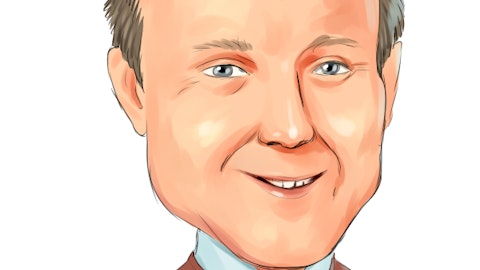
Two tenants of focus
It’s becoming increasingly evident that some of today’s front-page CEOs have been skipping history class. Take a moment to dust off your old business textbook and you’ll find that the role of a CEO is to “increase shareholder value.” While the charge lacks direction, it can be accomplished by completing two tenants of focus.
1. CEOs should focus on a company’s core competency – A business typically does one thing well. A CEO should help the business do it better.
2. CEOs should focus on increasing long-term shareholder value – Avoid unbearable (bet the farm) risk, unnecessary expenses, and act in a way that increases long-term profits over short-term gain.
Successful CEOs uphold these tenants, while those who neglect them are likely to find their businesses struggling. Let’s see how top CEOs stacked up in recent months:
The good
In April, Amazon.com, Inc. (NASDAQ:AMZN) CEO Jeff Bezos issued his latest letter to shareholders. In it he explained how the company is sacrificing this year’s profits in order to create long-term customer and product opportunities. Revenue rose 22%, while net income fell 37%. Bezos believes the sacrifice will create larger profits for next year, and for many years thereafter.
Continued focus on Amazon.com, Inc. (NASDAQ:AMZN)’s ability to create, deliver, and maintain low-priced products sounds like a wise move. Given Bezos’s history of focusing on Amazon.com, Inc. (NASDAQ:AMZN)s core competencies, it seems likely that an increased investment now will translate to increased profits later.
It would be a far cry for investors to want Bezos ousted from Amazon.com, Inc. (NASDAQ:AMZN). Jamie Dimon probably wishes that all JPMorgan Chase & Co. (NYSE:JPM) shareholders felt the same way. Dimon has been in the news after a shareholder vote allowed him to maintain his roles as Chairman of the Board, President, and CEO. Despite his many responsibilities, Dimon has kept his focus fixed on the company’s shareholders.
In 2006 Dimon recognized that subprime mortgages were becoming increasingly risky. In turn, it soon reduced its involvement with mortgage-backed securities, giving up fat short-term profits for drastically decreased risk. This allowed the firm to “avoid” the credit crunch to some degree and it was rewarded with a cheap acquisition of Bear Sterns. With continued focus on shareholders, Jamie Dimon is poised for another successful year.
Napoleon’s short (the bad)
Mark Pincus, former CEO of Zynga Inc (NASDAQ:ZNGA), came under scrutiny as shareholders watched their stock fall nearly 50% in the past year. Lacking revenue, and direction, it appears Mr. Pincus forgot his company’s core competency. To be fair, most investors aren’t sure what Zynga Inc (NASDAQ:ZNGA)’s core competency is anymore, but maybe that’s the problem.
Under Mr. Pincus’s leadership and near its 52-week low Zynga Inc (NASDAQ:ZNGA)’s stock is worth 80% less than its IPO. Perhaps new CEO Don Mattrick can turn things around. He formerly ran Microsoft’s Xbox division, and Zynga Inc (NASDAQ:ZNGA) shareholders hope that he can bring with him the “niche focus” that helped the Xbox.
Last month, former CEO of Chesapeake Energy Corporation (NYSE:CHK) Aubrey McClendon retired due to increasing pressure from two large shareholders. Since then, numerous problems have come to light.
Reportedly, McClendon was operating a $200 million hedge fund that traded the same commodities that Chesapeake Energy Corporation (NYSE:CHK) produced. In addition, McClendon has taken over $1.1 billion in loans against his stakes in Chesapeake Energy Corporation (NYSE:CHK) oil and gas wells. It’s clear that McClendon’s failure to focus upon shareholders led to a significant conflict of interest for the former CEO.







